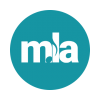Report of the MLA Liaison to CC:DA
Prepared by Keith Knop
CC:DA met virtually over two days, July 18-19, 2022. Minutes of the meeting are not yet available.
Liaison Reports
Melanie Polutta reported on activity at the Library of Congress (full report: https://alcts.ala.org/ccdablog/?p=5292). She highlighted two forms for providing feedback on LC-PCC PS and the associated PCC documents, one for reporting simple mechanical or typographical errors (https://loc.libwizard.com/f/lc-pcc-ps-error-report) and one for feedback or questions on the content (https://docs.google.com/forms/d/e/1FAIpQLSdSXHgduC1TnjXS7ERb0ggGyaIr3Z5xVeqUWyQ2fzEHioQR_w/viewform). There is also a public spreadsheet tracking revisions and answered questions (https://docs.google.com/spreadsheets/d/1vDPelYCMCtdEc4iahZ0bx_9r7AoH1B6boi_yAflvJ-8/edit#gid=0).
A number of vocabulary changes in LCSH have gone through or are in process, notably including the removal of “primitive” from preferred terms in most contexts. The LCGFT manual is undergoing an overhaul, which may result in policy changes. The moratorium on proposals for LCDGT has been lifted and an advisory group has been formed to help evaluate proposals. LC has created a new email address to collect comments on proposed vocabulary terms, listcomments@loc.gov, and drafted guidelines for how to attend editorial meetings; these were always open to the public but now occur virtually rather than in person.
Additionally, Jessalyn Zoom and Beacher Wiggins from the Library of Congress gave a presentation on the new process for updating of Romanization tables. There are currently update proposals for five languages: Armenian, Macedonian, Church Slavic, Japanese, and Manipuri (in Meitei script). A new table has also been proposed for the ADLaM script.
Interim chair Amanda Ros delivered a report on PCC activity on behalf of Everett Allgood (full report: https://alcts.ala.org/ccdablog/?p=5219). Notable activity in authority work includes the decision not to record gender in field 375 of authority records. PCC has also formed an identity advisory committee to provide feedback on general and specific issues related to identity management. The Authority Outreach Task Group produced two documents: one for authors and creators to explain the basics of authority work, and one for catalogers contacting creators. Both are available on the NACO Authority Control FAQs page: https://www.loc.gov/aba/pcc/naco/faq.html.
Future work includes additions to the Provider-Neutral E-Resource cataloging document and guidelines for the use of field 075 in authority records. In addition, PCC plans to release RDA training in two phases, beginning in late 2022: a general introduction to RDA, followed by full training.
Adam Baron noted in a comment that PCC has decided there is no rush on testing RDA and that it is more important to ensure the test is done correctly. Test documentation and questions to ask the testers are being finalized.
Robert Maxwell and Adam Schiff reported on NARDAC activities since February (full report: https://alcts.ala.org/ccdablog/?p=5258). Maxwell noted that they are especially interested in ideas for extending outreach to those who may not realize they have a voice in NARDAC. Who will have ongoing responsibility for “legacy” Anglo-American content in the Toolkit (which includes most content in sections 6.14 and 6.28 of the original Toolkit) remains an open question.
John Myers summarized the key points of the most recent MARC Advisory Council meeting (full report: https://alcts.ala.org/ccdablog/?p=5314), which included two proposals for additions and revisions to field 856 for electronic resources. One adds new indicators to identify a link as a constituent part of a larger resource and the other repurposes two obsolete subfields to record IRIs and broken or outdated URLs associated with a resource. Among the discussion papers expected to return as proposals, one suggested adding $3 to field 041 and making the field repeatable (it technically is repeatable now, but only to accommodate different encoding schemes).
CC:DA Updates and Discussion
Most of the CC:DA reports are of interest primarily within CC:DA, but a few items of general interest surfaced. In response to a question from John Myers, Core staff liaison Jenny Levine noted that as far as she understands ALA’s plan is to return to normal in-person meetings, with committees free to meet in-person or not, but that Core does not have the budget to provide dedicated AV support for hybrid meetings. For virtual meetings, committees may use ALA’s Zoom rooms and Core staff can sit in as tech support, provide recording links, and help with publicity. ALA does ask that no meetings be held the week of LibLearnX.
An inactive task force charged with “investigating RDA Toolkit beta training” was disbanded to be reformed later with an updated charge. There was some discussion of whether CC:DA involvement was needed in this field as PCC training would be freely available. Robert Maxwell noted that PCC training is designed for the needs of PCC catalogers, so perhaps CC:DA could pay particular attention to non-PCC institutions. Kathy Glennan and Tina Maes seconded the need for freely available non-PCC training. Timothy Mendenhall suggested training in how to put together an RDA proposal might be appropriate; Kathy Glennan suggested that might better come from NARDAC, but with CC:DA involvement.
Interim chair Amanda Ros also stressed the importance of CC:DA involvement in RDA development. Melanie Polutta agreed, pointing out that there is often some confusion about LC and PCC; PCC is a separate entity and CC:DA is the venue for PCC members to propose RDA changes. Robert Maxwell noted that NARDAC has occasionally had to put together responses to the RSC without direct ALA input, so it is especially important that CC:DA members and community liaisons provide timely feedback when proposals are released for comment.
